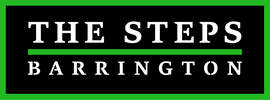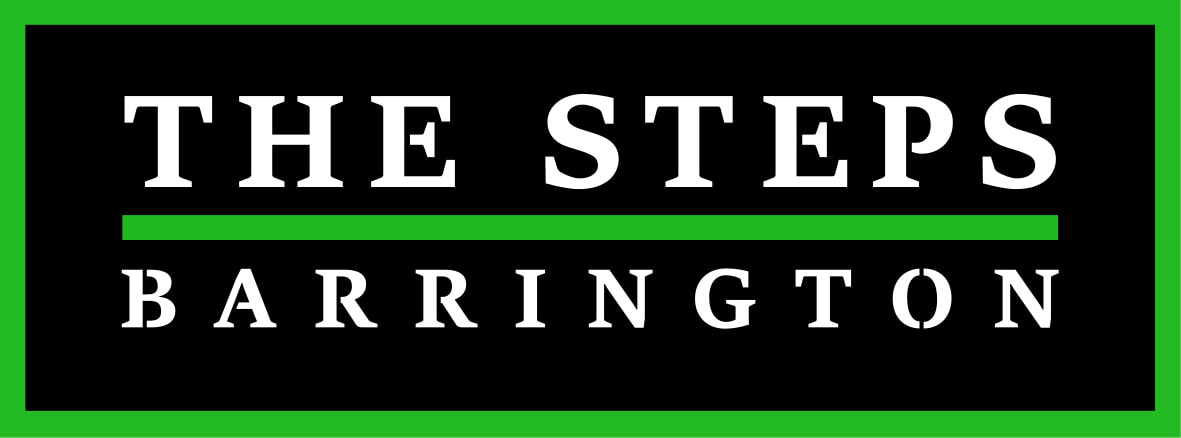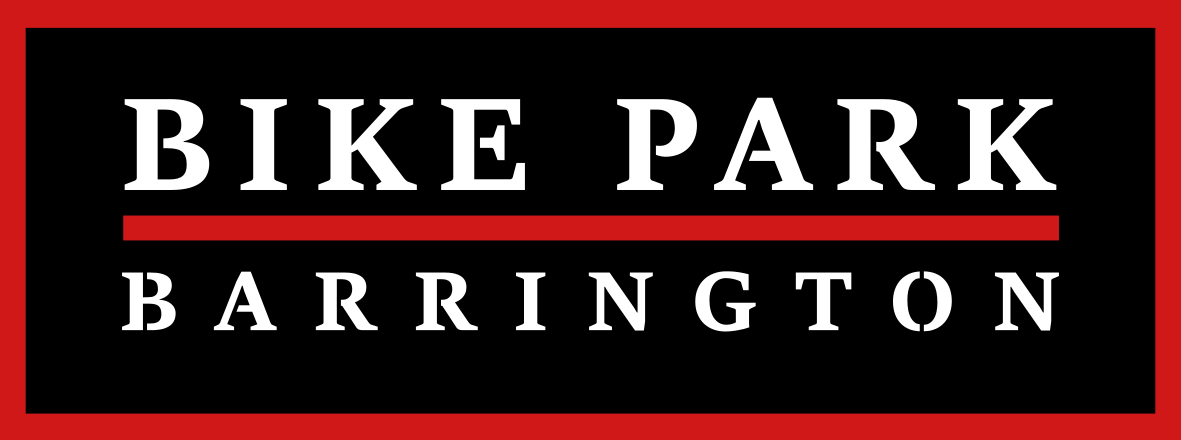Sustainable tourism encourages visitors to connect with their natural environment and educates them on the importance of preserving and contributing to the wellbeing of the natural world. This is a great responsibility on sustainable tourism operators to be ethical and transparent in all the information they provide, from advertising through to interpretation.
Riverbank plantings with Duke of Edinburgh Award participants.Weed removal and plantingWhen we arrived at The Steps the riparian zone was choked with weeds and the rest of the property was cleared farmland. Restoring the land to a more natural state and providing habitat for native animals was very important to us from the beginning of our stewardship journey.
We feel a great responsibility to protect and better the landscape we are entrusted with.
In this beautiful location we’ve spent many hours removing privet, lantana and other weeds and planting native species to provide shade and habitat. It’s hands-on work that takes dedication and we’ve been very grateful for a lot of help along the way from our amazing Duke of Edinburgh students during their Gold Residential Project.
The riverside work has been interrupted by intermittent floods and there’s still a lot to be done however the land and riverbanks are now much closer to a natural state with improved resilience.
Amenities block is part of the greywater wetland system to process waste water.Waste water systemBeing a riverside location, waste water is a significant risk in such a sensitive natural environment. At The Steps there’s no connection to the town sewer system so waste water can’t be delegated off-site to be someone else’s problem.
With the river so close we must be really careful not to pollute. We chose a natural worm farm system to biologically treat waste water rather than bringing in chemicals or having an open system needing to be fenced off. The worms eat the poo and any liquid is pumped underground to be absorbed in the landscape.
During the drought, when water was so scarce, we decided we could do more with this valuable resource. We are now pumping all grey water to the top of the property to be treated in a natural wetland system. On exiting the wetland, water is directed to a series of swales on which fruit trees are planted… the beginnings of a permaculture food forest. Our vision for the future is that visitors can buy fresh organic fruit and vegetables from the office during their stay at The Steps.
Red shouldered wallaby with joey at The Steps Barrington.Land for WildlifeThe Steps has been designated Land for Wildlife for over 10 years. This voluntary registration scheme means we make a conscious effort to preserve the property as a habitat for native species. By removing weeds and planting native species, we provide food and shelter for native animals.
Not only do we feel good about managing The Steps’s biodiversity and wildlife habitat, our guests are rewarded by regularly seeing wallabies, wallaroos, echidnas, bandicoots, goannas, wedge-tailed eagles, cockatoos, parrots, rosellas, and so many more. To help protect these species, domestic animals are not permitted at The Steps.
Healthy riparian zone at The Steps Barrington.A space for people to connect with natureHaving spent many years living in cities ourselves, we understand just how easy it can be to disconnect with the natural environment and natural rhythms. We hope that those spending time at The Steps can reconnect with the natural world...
The sounds of the river, the birdsong, fresh air, sunshine (and rain), no WiFi, watching the animals, spending time with family and friends, waking up with the sun, and sharing time around a campfire - all of this helps us reset and clear our minds. And that will make you more resilient, just like we’re helping the landscape to be.
Riverbank plantings with Duke of Edinburgh Award participants.Weed removal and plantingWhen we arrived at The Steps the riparian zone was choked with weeds and the rest of the property was cleared farmland. Restoring the land to a more natural state and providing habitat for native animals was very important to us from the beginning of our stewardship journey.
We feel a great responsibility to protect and better the landscape we are entrusted with.
In this beautiful location we’ve spent many hours removing privet, lantana and other weeds and planting native species to provide shade and habitat. It’s hands-on work that takes dedication and we’ve been very grateful for a lot of help along the way from our amazing Duke of Edinburgh students during their Gold Residential Project.
The riverside work has been interrupted by intermittent floods and there’s still a lot to be done however the land and riverbanks are now much closer to a natural state with improved resilience.
Amenities block is part of the greywater wetland system to process waste water.Waste water systemBeing a riverside location, waste water is a significant risk in such a sensitive natural environment. At The Steps there’s no connection to the town sewer system so waste water can’t be delegated off-site to be someone else’s problem.
With the river so close we must be really careful not to pollute. We chose a natural worm farm system to biologically treat waste water rather than bringing in chemicals or having an open system needing to be fenced off. The worms eat the poo and any liquid is pumped underground to be absorbed in the landscape.
During the drought, when water was so scarce, we decided we could do more with this valuable resource. We are now pumping all grey water to the top of the property to be treated in a natural wetland system. On exiting the wetland, water is directed to a series of swales on which fruit trees are planted… the beginnings of a permaculture food forest. Our vision for the future is that visitors can buy fresh organic fruit and vegetables from the office during their stay at The Steps.
Red shouldered wallaby with joey at The Steps Barrington.Land for WildlifeThe Steps has been designated Land for Wildlife for over 10 years. This voluntary registration scheme means we make a conscious effort to preserve the property as a habitat for native species. By removing weeds and planting native species, we provide food and shelter for native animals.
Not only do we feel good about managing The Steps’s biodiversity and wildlife habitat, our guests are rewarded by regularly seeing wallabies, wallaroos, echidnas, bandicoots, goannas, wedge-tailed eagles, cockatoos, parrots, rosellas, and so many more. To help protect these species, domestic animals are not permitted at The Steps.
Healthy riparian zone at The Steps Barrington.A space for people to connect with natureHaving spent many years living in cities ourselves, we understand just how easy it can be to disconnect with the natural environment and natural rhythms. We hope that those spending time at The Steps can reconnect with the natural world...
The sounds of the river, the birdsong, fresh air, sunshine (and rain), no WiFi, watching the animals, spending time with family and friends, waking up with the sun, and sharing time around a campfire - all of this helps us reset and clear our minds. And that will make you more resilient, just like we’re helping the landscape to be.



